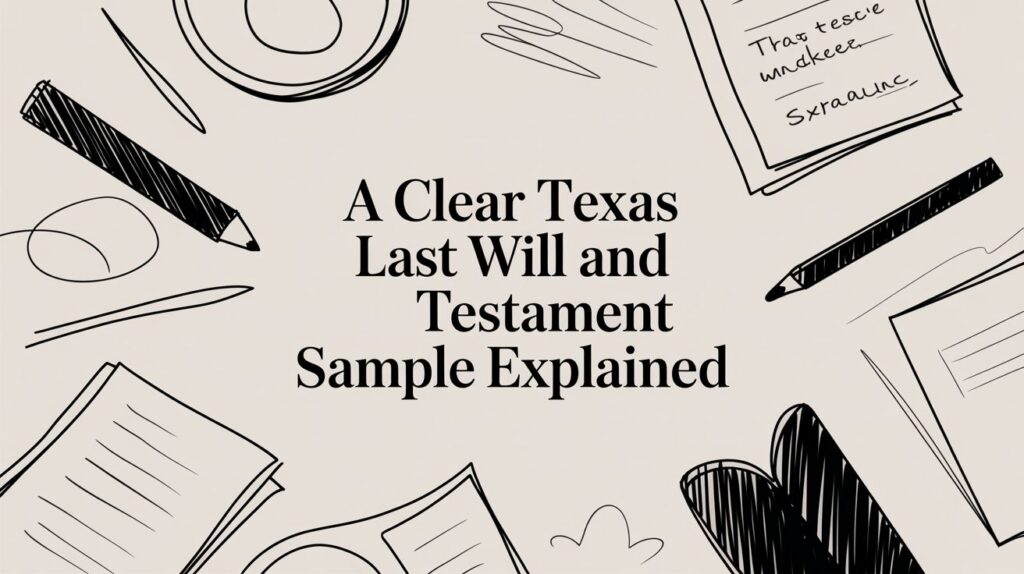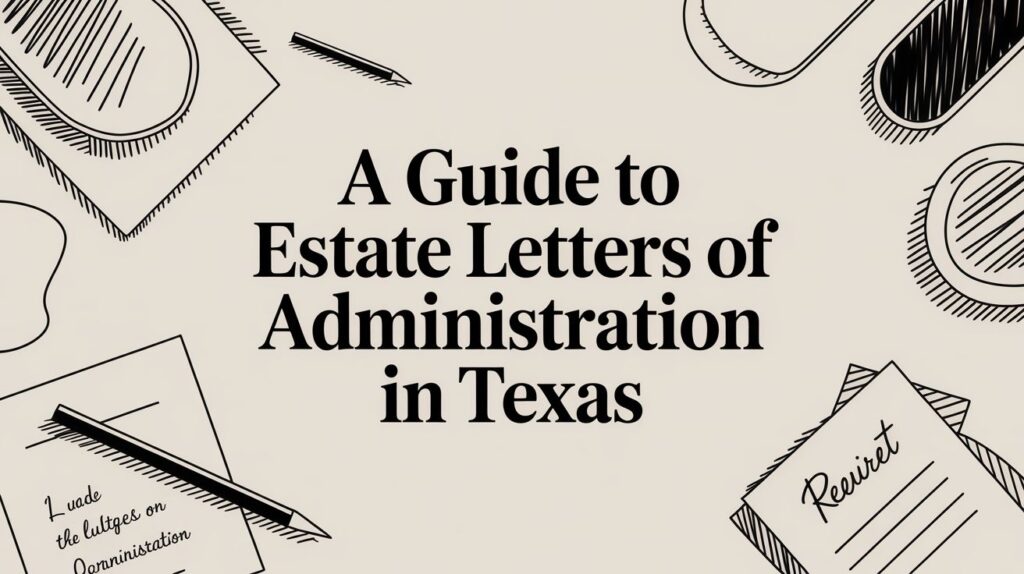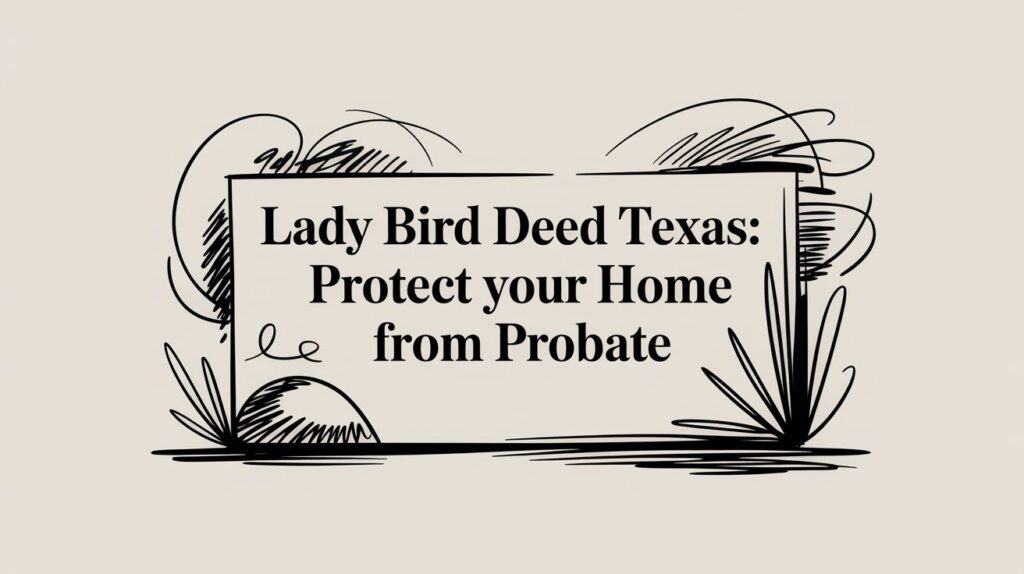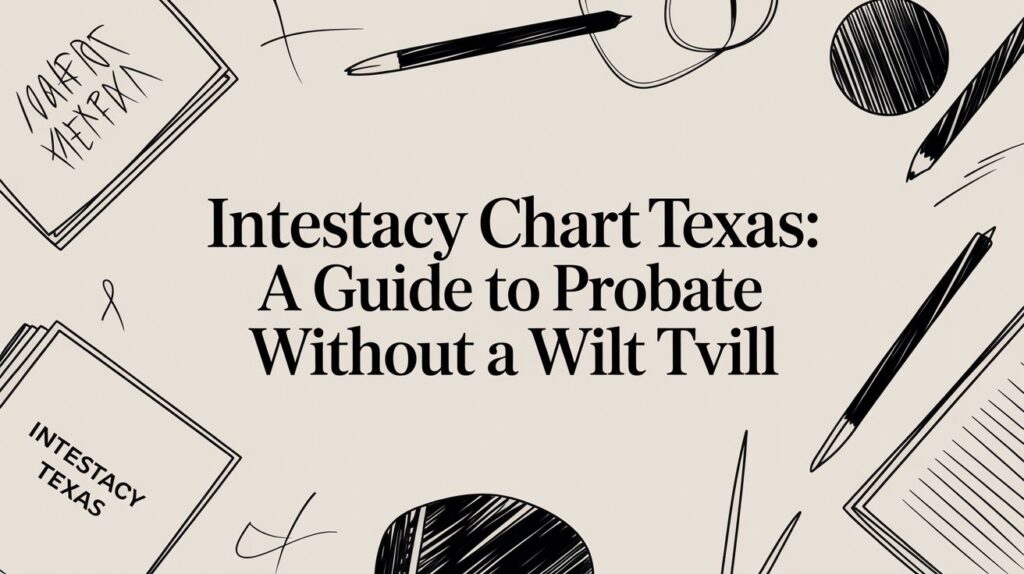Divorce often marks the end of a shared life, but it doesn’t always end shared ownership. Many Texas couples finalize their divorce, move on, and assume their assets are fully divided—until tragedy strikes and someone dies. Then, a new problem surfaces: the ex-spouse’s name is still on the property title. It might sound like a technical oversight, but in reality, it’s one of the most common causes of property disputes in Texas probate courts.
This lingering tie can spark chaos. Imagine an ex-husband who passes away years after the divorce, and the deed to his home still lists his former wife as a joint owner. Or a divorced woman who remarries, only for her children to discover after her death that her ex-spouse’s name remains on a title to a rural property she assumed was fully hers. These situations create confusion, delay inheritance, and can even jeopardize rightful ownership.
In Texas, property titles carry significant legal weight. A divorce decree may award a home to one spouse, but unless that change is reflected on the title, the records tell a different story. And when death enters the picture, courts, creditors, and heirs rely heavily on those records—not on verbal agreements or even assumptions made in a divorce judgment.

So what happens when your ex-spouse is still on the house title after death in Texas? The answer lies in understanding how property law, divorce decrees, and probate rules intersect.
The Overlooked Step After Divorce: Updating the Title
In most divorces, property division focuses on big-picture fairness. Spouses negotiate who gets the marital home, who takes the rental property, and who assumes any debt. The divorce decree then spells out these decisions. But what many Texans overlook is that the decree itself doesn’t automatically update property titles.
For example, if the court awards the home to one spouse, that spouse still needs to record a new deed, removing the other’s name from the title. This is often done through a “special warranty deed” or a “quitclaim deed.” Without that step, both names remain listed in county property records, meaning both still legally appear to have ownership interests—even if the divorce decree says otherwise.
When both parties are alive, this oversight can be frustrating but fixable. The ex-spouse can sign over their interest through the proper document, and the issue is resolved. However, if one ex-spouse dies before the correction is made, things become significantly more complicated. The deceased’s estate may now appear to own part of the property, and the surviving ex-spouse—or their heirs—might have to fight to clear the title.
This type of mistake happens more often than most people realize. Many couples believe that once the judge signs the divorce decree, all ownership rights are automatically updated. Unfortunately, that’s not true in Texas. Titles and deeds must be updated manually, and failing to do so creates a legal paper trail that the probate court can’t ignore.
Why Titles Stay Unchanged After Divorce
There are a few common reasons ex-spouses remain tied to property even after the divorce is final. Sometimes, it’s simply neglect. Other times, there is confusion about who was responsible for filing the new deed. In high-conflict divorces, one spouse might even refuse to cooperate, leaving the paperwork incomplete.
Texas property law is straightforward in one sense: whoever is listed on the title owns the property—period. But divorce decrees often create a second layer of authority that can conflict with what’s recorded in public records. For instance, a decree might say “the marital home is awarded to Jane Doe,” but the county title records may still list both Jane and her ex-husband, John. When John dies, his estate might still show ownership of that property on paper, even though the divorce court already said otherwise.
This disconnect between family court and property law is where many post-divorce disputes begin. Heirs, creditors, and even mortgage lenders rely on the recorded title to determine ownership. So if your ex-spouse’s name still appears there, the law presumes they—or their estate—still own a share.

That means the surviving spouse or their heirs must now prove that ownership had already transferred through the divorce decree. That often requires filing documents with both the probate court and the county clerk, presenting certified copies of the decree, and possibly going through an additional court process to clear the title.
It’s a tedious process, and in cases where records are old or incomplete, it can take months to resolve. Worse, it can block property sales, delay estate distributions, or even lead to litigation between surviving family members and the deceased’s estate.
How Title Confusion Affects Heirs and Property Sales
Imagine this scenario: after years of separation, a woman finalizes her divorce and keeps the family home. Her ex-husband moves out, remarries, and passes away unexpectedly a decade later. When she decides to sell the property, the title search reveals his name still on the deed. The buyer’s title company refuses to close until the ownership issue is resolved.
This is exactly how many Texans discover their ex-spouse’s name is still tied to their property. Title confusion doesn’t just complicate estate planning—it also affects future sales, refinancing, and even inheritance rights.
For heirs, this confusion can be even worse. Suppose the deceased spouse’s will leaves “all property” to their children, and county records show co-ownership of a home with an ex-spouse. The children, thinking they’ve inherited a share, may file probate claims against the property. The ex-spouse, believing the home was fully theirs after the divorce, must now defend their ownership in probate court.
The result? A time-consuming, emotionally charged legal battle that drains everyone involved. The court must then sort through divorce decrees, titles, and sometimes even decades-old bank or mortgage records to determine who truly owns what.
This type of dispute can freeze an estate for months—or years. During that time, the property may sit in limbo, unable to be sold, rented, or transferred. Meanwhile, taxes and maintenance costs continue to accumulate, often causing financial stress for surviving family members.
Probate Complications When an Ex-Spouse Is Still on the Title
Probate courts in Texas deal with property ownership every day, but when divorce mixes in, the process can get messy. If the deceased ex-spouse’s name is still on the title, the probate court may initially treat the property as part of their estate. This triggers legal notice requirements to heirs and creditors, even if the surviving ex-spouse already owns the property according to the divorce decree.
To fix this, the surviving party usually must file a motion or petition in probate court, presenting the divorce decree as evidence that ownership had already been transferred. In some cases, the court may order the estate executor to sign a deed confirming that transfer, clearing the deceased’s name from the records.
But not all cases are this clean. If the divorce decree was vague or if it didn’t explicitly state how the title should be transferred, the court may interpret ownership differently. Some judges may decide the deceased’s estate still retains an interest, particularly if community property laws were not properly addressed. Others might defer to the decree’s intent and remove the deceased’s name entirely.
The complexity often depends on timing. If the divorce happened many years before death, but no new deed was recorded, the surviving ex-spouse may still have a strong claim. However, if the divorce was recent or property records are unclear, probate courts may side with heirs, arguing that the deceased’s share wasn’t fully transferred.
Either way, clearing title after death always takes time and money. Lawyers must gather certified copies of old decrees, property appraisals, and sometimes testimony to prove intent. The longer the issue lingers, the more it costs—and the greater the emotional toll on surviving family members.
Fixing the Problem After Death
If you discover after someone’s death that their ex-spouse remains on a property title, your first step should be to contact a probate attorney. They can help determine whether the property was addressed in the divorce decree and how to present that decree to the probate court.
In some cases, the solution may be as simple as filing an “Affidavit of Heirship” or a “Correction Deed.” In others, especially when the title issue affects large estates or valuable real estate, you may need a formal court order removing the ex-spouse’s interest.
The key document in these cases is almost always the divorce decree. If it clearly states that the property was awarded to one spouse, that document can be used as proof of ownership. The problem, however, is that not all decrees are that specific. Many older decrees refer to properties vaguely, without full legal descriptions. In such cases, you’ll need to prove through additional evidence—like mortgage statements or correspondence—that the property was intended for one spouse.
For surviving spouses, this process can be emotionally exhausting. You may feel like you’re reliving the divorce all over again, this time in probate court. But taking the proper legal steps ensures the property ends up in the right hands and prevents future disputes.

How to Prevent Title Disputes After Divorce
Avoiding this mess is simpler than cleaning it up later. Once your divorce decree is finalized, follow through on every property-related order immediately. If you are awarded a home or land, file a new deed removing your ex-spouse’s name. If you relinquish ownership, sign the necessary documents promptly to transfer your interest.
You should also review all your property records with your attorney before finalizing the divorce. Many lawyers focus on dividing assets but overlook title formalities. Taking time to record updated deeds ensures that your ownership reflects the court’s decision.
Finally, remember that life events—like remarriage, death, or moving—don’t automatically fix title issues. If your ex-spouse’s name is still on the property, their estate will likely claim an interest after death. Clearing that name from the records is your best protection against probate complications later.
Don’t Wait: Update Your Title to Prevent Ex-Spouse Probate Headaches
When your ex-spouse is still on the house title after death in Texas, the consequences reach far beyond paperwork. What seems like a harmless oversight can unravel into years of probate delays, inheritance conflicts, and costly legal battles. The courts rely on public records, not assumptions, and a recorded title carries weight.
The lesson here is simple: don’t wait for a crisis to reveal what’s still on your property records. Texas law allows clean title transfers, but only if you take deliberate steps after divorce to update ownership. Divorce may end the marriage, but only a recorded deed ends joint ownership.
If you or someone you love is facing this issue after a spouse’s death, seek legal guidance early. The longer the title remains clouded, the harder it becomes to correct. A few proactive steps today can save your heirs from confusion, expense, and heartache tomorrow.








